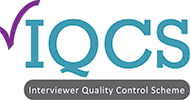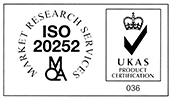
The definition of Market Research
Market research is the process of gathering and analysing data about a target market, product, or service. It is used to identify customer needs, preferences, and trends in order to inform decisions about product design, pricing, and marketing strategies. Market research helps businesses to understand their target market better and make informed decisions about their products and services.
Benefits of Market Research
Market research provides businesses with valuable insights into their target market, allowing them to make more informed decisions about their product or service. It can help business owners identify new opportunities, develop better products and services, and improve their marketing strategies. Market research can also help businesses to identify potential competitors and understand their competitive advantage. Additionally, primary market research can help businesses to identify customer needs and preferences, allowing them to tailor their products and services to meet those needs.
II. Qualitative Market Research Methods
A. Focus Groups
Focus groups are a qualitative research method in which a small group of people are brought together to discuss a particular topic. Focus groups are often used to explore consumer attitudes and opinions about products, services, or brands. The moderator of the focus group will ask questions to the participants and use their responses to gain insights into the target market.
B. Interviews
Interviews are another qualitative research method in which an interviewer asks questions to an individual or small group of people. Interviews are used to gain a deeper understanding of a particular topic or issue. Interviews can be conducted in person, over the phone, or online.
C. Surveys
Surveys are a type of qualitative research method in which participants are asked a series of questions about a particular topic. Surveys can be used to gather data about consumer attitudes, opinions, and behaviours. Research surveys can be conducted in person, over the phone, or online.
D. Online Communities
Online communities are groups of people who are connected through social media or other online platforms. Online communities gather insights into consumer attitudes, opinions, and behaviours.
E. Observation
Observation is a qualitative research method in which the researcher observes people in their natural environment. This method can be used to gain insights into consumer behaviour and preferences.
III. Quantitative Market Research Methods
A. Experiments
Experiments are a type of quantitative research method in which the researcher manipulates one or more variables and measures the effect on the outcome. Experiments are used to gain insights into consumer behavior and preferences.
B. Surveys
Surveys are a type of quantitative research method in which participants are asked a series of questions about a particular topic. Surveys can be used to gather data about consumer attitudes, opinions, and behaviours.
C. Analytics
Analytics is a quantitative research method in which data is collected and analyzed to gain insights into consumer behaviour and preferences. Analytics can be used to identify trends and patterns in customer behaviour.
D. Predictive Modeling
Predictive modeling is a quantitative research method in which data is used to create models that can predict future customer behavior. Predictive models can be used to identify customer trends and anticipate customer needs.
E. A/B Testing
A/B testing is a quantitative research method in which two versions of a product or service are tested to determine which one performs better. A/B testing can be used to identify customer preferences and optimize products and services.
IV. Best Practices for Market Research
A. Identify the Research Objectives
Before conducting any market research, it is important to identify the research objectives. This will help to ensure that the research is focused and relevant to the business’s needs.
B. Choose the Appropriate Method
Once the research objectives have been identified, it is important to choose the appropriate method for collecting the data. Different methods are better suited for different types of research, so it is important to choose the method that best fits the research objectives.
C. Collect Data in an Ethical Manner
It is important to ensure that the data is collected in an ethical manner. This means that the data should be collected in a way that respects the privacy of the participants and adheres to any relevant regulations or laws.
D. Analyse the Data
Once the data has been collected, it is important to analyze it in order to draw meaningful conclusions. This can be done by looking for patterns or trends in the data, or by using statistical methods to make predictions.
E. Present the Results
Finally, it is important to present the results in a clear and concise manner. This will allow the business to make decisions based on the research findings.
V. Conclusion
A. Summary of Market Research Methods
Market research is an important tool for businesses to understand their target market better and make informed decisions about their products and services. There are a variety of market research methods, including qualitative methods such as focus groups, interviews, surveys, online communities, and observation, and quantitative methods such as experiments, surveys, analytics, predictive modeling, and A/B testing.
B. Benefits of Market Research
Market research provides businesses with valuable insights into their target customers/market, allowing them to make more informed decisions about their products or service. It can help businesses identify new opportunities, develop better products and services, and improve their marketing strategies.
C. Resources for Further Learning
Various resources are available to help businesses learn more about market research. These include books, online courses, and industry websites.
To find out more please contact us here.



